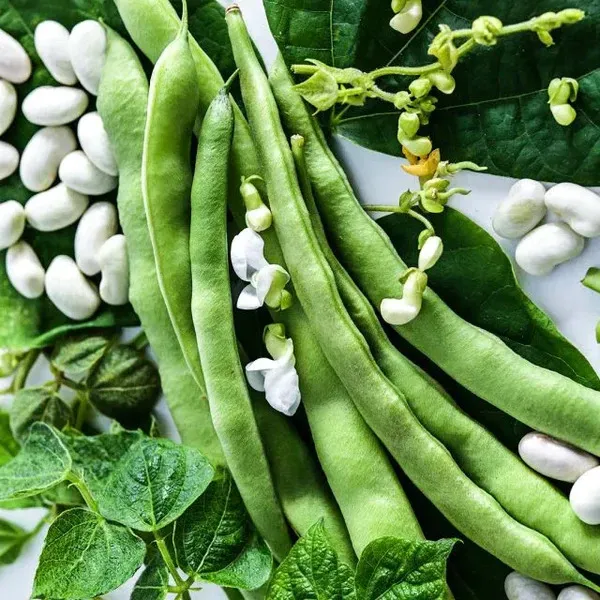Growing Black Apple Trees: A Rare and Exotic Fruit for Your Home Garden
Discover the Unique Beauty of Black Apples
Black apples are an extraordinary variety that captivates gardeners with their deep purple to black skin, crisp texture, and rich sweetness. Unlike traditional apples, this rare fruit contains high levels of anthocyanins, giving it a dark hue and powerful antioxidant benefits. Cultivating black apple trees not only adds an exotic touch to your orchard but also provides a delicious and nutritious harvest.
If you are looking to grow something truly unique, Black Apple Trees are an excellent choice. Whether you’re an experienced fruit grower or a beginner gardener, this guide will help you successfully grow and care for black apple trees from seed to fruit.

Why Grow Black Apples?
Black apples are a sought-after variety due to their striking appearance and delicious taste. Here’s why they make a great addition to any garden:
1. Rare and Eye-Catching
Unlike traditional red or green apples, black apples stand out with their dark, almost black skin, making them a visually stunning fruit.
2. Rich in Nutrients
- High in antioxidants (anthocyanins) that promote overall health.
- Packed with fiber, vitamin C, and potassium for a strong immune system.
- Helps improve digestion and supports heart health.
3. Versatile Uses
Black apples are delicious when eaten fresh, but they also shine in various culinary applications:
- Juices and Smoothies — Naturally sweet with a deep color.
- Baking — Adds richness to pies, tarts, and cakes.
- Jams and Preserves — Makes flavorful and antioxidant-rich spreads.
4. Easy to Grow & Maintain
Black apple trees are hardy, adaptable, and suitable for various climates, making them ideal for both small and large gardens.
How to Grow Black Apple Trees from Seeds
Growing black apples from seeds requires patience, but the reward is worth the effort. Follow these steps for successful germination and growth:
1. Seed Preparation & Germination
- Soak the seeds in room-temperature water for 24 hours to improve germination rates.
- Cold stratification is recommended to mimic natural winter conditions:
- Place seeds in a damp paper towel inside a sealed plastic bag.
- Store in the refrigerator for 6–8 weeks.
- After stratification, plant the seeds ½ inch deep in a well-draining soil mix.
2. Transplanting & Soil Requirements
- Once seedlings reach 6–12 inches tall, transfer them to larger pots or outdoor soil.
- Choose a sunny location with at least 6–8 hours of direct sunlight daily.
- Use well-draining, slightly acidic soil with a pH of 6.0–6.5.
3. Watering & Fertilization
- Keep the soil evenly moist but not waterlogged.
- Use an organic fruit tree fertilizer every 2–3 months for optimal growth.
4. Pruning & Maintenance
- Prune in late winter to encourage strong branches and better fruit production.
- Remove dead or weak branches to improve airflow.
5. Flowering & Fruit Production
- Expect flowering in 3–5 years after planting.
- Fruits will ripen when they develop a deep purple-black color and feel slightly firm to the touch.
Best Companion Plants for Black Apple Trees
Companion planting can enhance tree growth, improve soil health, and deter pests.
Best Companion Plants:
- Marigolds — Naturally repel harmful insects.
- Lavender & Chamomile — Attract beneficial pollinators.
- Garlic & Onions — Prevent fungal infections in apple trees.
- Strawberries & Clover — Improve soil quality and act as natural mulch.
Plants to Avoid:
- Walnut Trees — Produce juglone, a compound harmful to apple trees.
- Fennel — Competes for nutrients and may slow apple tree growth.
Caring for Black Apple Trees Throughout the Seasons
To ensure a successful harvest, follow these seasonal care tips:
Spring:
- Apply a balanced fertilizer as new growth begins.
- Prune weak or overcrowded branches.
- Keep an eye out for early pests like aphids.
Summer:
- Maintain regular watering, especially during hot months.
- Thin excess fruit to encourage larger, healthier apples.
Autumn:
- Harvest apples when they reach full color and flavor.
- Remove fallen leaves and fruit to prevent disease.
Winter:
- Apply a layer of mulch around the base to protect roots.
- If growing in colder regions, consider covering young trees or moving potted trees indoors.
Health Benefits of Black Apples
Beyond their stunning appearance, black apples offer numerous health benefits:
- Supports Immune Health — High in vitamin C and antioxidants.
- Boosts Digestion — Rich in dietary fiber.
- Protects the Heart — Contains flavonoids that may reduce heart disease risk.
- Natural Anti-Aging Properties — Anthocyanins help reduce oxidative stress.
Where to Buy Black Apple Seeds?
If you’re looking to grow your own rare and exotic Black Apple trees, purchase high-quality seeds from Organic India Seeds. These premium seeds will help you cultivate a stunning apple variety that is as nutritious as it is beautiful.



Commenta
Questo sito è protetto da hCaptcha e applica le Norme sulla privacy e i Termini di servizio di hCaptcha.